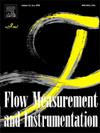A hybrid cellular automata-based topology optimization method for incompressible fluid flow channels
IF 2.3
3区 工程技术
Q2 ENGINEERING, MECHANICAL
引用次数: 0
Abstract
Optimization of fluid flow paths has become essential for enhancing the performance and efficiency of engineering systems. This study investigates the topology optimization problem for steady-state incompressible Navier-Stokes flow. By leveraging the potential of hybrid cellular automata to simulate complex system behaviors, this approach is combined with computational fluid dynamics to propose a variable density topology optimization algorithm applicable to incompressible fluid flow channels. Using a three-terminal device as an example, numerical simulations and experiments verify that the variable density topology optimization method for the Solid Isotropic Material with Penalization interpolation model, when augmented with a local control criterion, significantly improves the performance of the fluid system. The topology optimization system is applied to models under various working conditions, demonstrating good generality.
一种基于混合元胞自动机的不可压缩流体通道拓扑优化方法
流体流道的优化对于提高工程系统的性能和效率至关重要。研究了稳态不可压缩Navier-Stokes流的拓扑优化问题。通过利用混合元胞自动机模拟复杂系统行为的潜力,将该方法与计算流体动力学相结合,提出了一种适用于不可压缩流体通道的变密度拓扑优化算法。以三端装置为例,通过数值模拟和实验验证了基于Penalization插值模型的固体各向同性材料变密度拓扑优化方法,在加入局部控制准则的基础上,显著提高了流体系统的性能。将拓扑优化系统应用于各种工况下的模型,显示出良好的通用性。
本文章由计算机程序翻译,如有差异,请以英文原文为准。
求助全文
约1分钟内获得全文
求助全文
来源期刊

Flow Measurement and Instrumentation
工程技术-工程:机械
CiteScore
4.30
自引率
13.60%
发文量
123
审稿时长
6 months
期刊介绍:
Flow Measurement and Instrumentation is dedicated to disseminating the latest research results on all aspects of flow measurement, in both closed conduits and open channels. The design of flow measurement systems involves a wide variety of multidisciplinary activities including modelling the flow sensor, the fluid flow and the sensor/fluid interactions through the use of computation techniques; the development of advanced transducer systems and their associated signal processing and the laboratory and field assessment of the overall system under ideal and disturbed conditions.
FMI is the essential forum for critical information exchange, and contributions are particularly encouraged in the following areas of interest:
Modelling: the application of mathematical and computational modelling to the interaction of fluid dynamics with flowmeters, including flowmeter behaviour, improved flowmeter design and installation problems. Application of CAD/CAE techniques to flowmeter modelling are eligible.
Design and development: the detailed design of the flowmeter head and/or signal processing aspects of novel flowmeters. Emphasis is given to papers identifying new sensor configurations, multisensor flow measurement systems, non-intrusive flow metering techniques and the application of microelectronic techniques in smart or intelligent systems.
Calibration techniques: including descriptions of new or existing calibration facilities and techniques, calibration data from different flowmeter types, and calibration intercomparison data from different laboratories.
Installation effect data: dealing with the effects of non-ideal flow conditions on flowmeters. Papers combining a theoretical understanding of flowmeter behaviour with experimental work are particularly welcome.
 求助内容:
求助内容: 应助结果提醒方式:
应助结果提醒方式:


